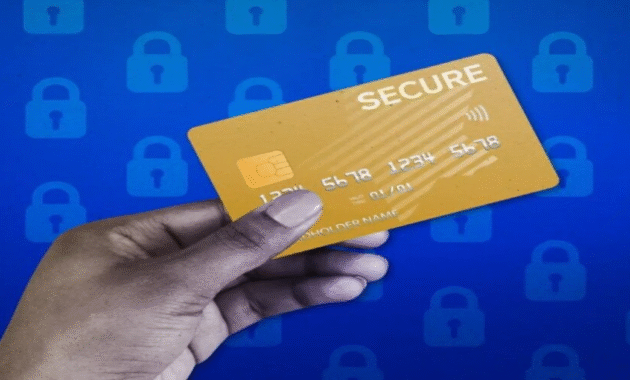Having a healthy credit score is crucial for achieving financial stability, qualifying for loans, and even securing favorable interest rates. A low credit score can hinder your ability to get credit cards, mortgages, or car loans, and can result in higher borrowing costs. If you’re looking to improve your credit score quickly, here are ten simple steps you can follow to boost it.
1. Check Your Credit Report for Errors
Before you start taking action to improve your credit score, it’s essential to get a clear picture of your current standing. Begin by requesting your free credit report from the three major credit bureaus: Experian, TransUnion, and Equifax. Review these reports for any inaccuracies, such as incorrect personal information, fraudulent accounts, or errors in your payment history.
What to Do If You Find Errors
If you spot any discrepancies, dispute them directly with the credit bureau. They are legally obligated to investigate and correct any mistakes. This step could result in a quick improvement to your score if errors are found and resolved.
2. Pay Your Bills On Time

Your payment history makes up 35% of your credit score, so it’s essential to pay your bills on time. Late payments can have a severe impact on your score, and the longer you delay, the more damage it can do. If you’ve missed payments in the past, try to bring all accounts up to date as quickly as possible.
Tips for Managing Payments
- Set up automatic bill payments to avoid forgetting.
- Use reminders or mobile apps to track your due dates.
- If you have trouble making payments, contact the creditor to discuss a payment plan.
3. Reduce Your Credit Card Balances
Your credit utilization ratio—how much of your available credit you’re using—accounts for about 30% of your credit score. Ideally, you should aim to keep your credit utilization below 30%. If you’re carrying high balances on your credit cards, focus on paying them down.
Strategies to Reduce Balances
- Make more than the minimum payment each month.
- Pay off cards with higher interest rates first.
- Consider consolidating debt through a personal loan if it helps reduce overall interest costs.
4. Avoid Opening New Credit Accounts
While it may seem like applying for a new credit card or loan could help you in the short term, opening new accounts can hurt your credit score in the long run. Every time you apply for credit, a hard inquiry is made, which can temporarily lower your score. Instead, focus on improving your existing credit and avoid unnecessary credit applications.
Exceptions to Consider
- If you’re in need of a specific credit type (e.g., a mortgage or auto loan), it’s okay to apply, but try to limit your applications.
- Opening a new account may be helpful if you’re looking to improve your credit utilization ratio (for example, by increasing your available credit).
5. Negotiate with Creditors
If you’re struggling with a specific debt, it may be worthwhile to reach out to the creditor directly. Many creditors are willing to work with you if you’re having trouble making payments. You can negotiate lower interest rates, extend your payment timeline, or even settle for a reduced amount.
How to Negotiate
- Be honest about your financial situation.
- Offer to pay a lump sum if you’re settling a debt for less than the full amount.
- Get everything in writing to ensure there are no misunderstandings later.
6. Become an Authorized User on Another Account
If you have a close friend or family member with a good credit history, ask them to add you as an authorized user on one of their credit cards. This can help improve your score by allowing you to inherit their positive credit history without having to open a new account yourself.
Important Considerations
- Ensure the primary cardholder has a solid payment history, as their activity will impact your credit.
- The card issuer must report authorized user activity to the credit bureaus for this strategy to work.
7. Settle Old Debts
If you have old debts that have been sent to collections, settling them can have a positive effect on your credit score. While it won’t remove the negative mark from your report, it will show that you’ve taken action to address the issue, which may improve your score over time.
How to Settle Debts
- Contact the collection agency to discuss payment options.
- Negotiate a settlement for a lower amount if possible.
- Make sure you get any agreement in writing before making payments.
8. Use a Secured Credit Card

If your credit is too low to qualify for a traditional credit card, a secured credit card could be a good option. Secured cards require a deposit that serves as your credit limit. As you use the card responsibly, it will help build your credit score.
How to Use a Secured Card
- Make small purchases and pay off the balance in full each month.
- Avoid maxing out your credit limit, as this can negatively impact your credit utilization ratio.
- After six months to a year, you may be able to qualify for a traditional credit card.
9. Consider a Credit Builder Loan
Credit builder loans are designed to help individuals with little or no credit history improve their scores. These loans work by placing the borrowed funds in an account that you can’t access until the loan is paid off. As you make timely payments, your credit score improves.
Benefits of Credit Builder Loans
- They provide a structured way to build your credit.
- Payments are often reported to the credit bureaus.
- They can help boost your score quickly if managed properly.
10. Monitor Your Credit Regularly
Once you’ve taken the necessary steps to improve your credit score, it’s crucial to monitor it regularly. Keep track of your credit report to ensure there are no errors or fraudulent activities that could negatively impact your score. Additionally, tracking your progress allows you to see the results of your efforts.
Tools to Help Monitor Your Credit
- Use free credit monitoring services provided by the credit bureaus or third-party apps.
- Sign up for alerts to notify you of changes in your credit report.
Also Read: How To Apply For Student Credit Card: A Step by step Guide
Conclusion
Improving your credit score doesn’t have to be an overwhelming task. By following these ten simple steps, you can make noticeable improvements in a relatively short amount of time. It’s important to remain consistent in your efforts and be patient, as it can take time for your score to reflect your hard work. Remember, the most significant factors in your score are your payment history and credit utilization, so focusing on these areas will yield the greatest results.
Take control of your financial future today by implementing these strategies and seeing your credit score rise.
FAQs
Q. What Is a Good Credit Score?
A good credit score typically falls in the range of 670 to 739, according to the FICO score scale. However, the higher your score, the better your chances of qualifying for loans with favorable terms.
Q. How Long Does It Take to Improve Your Credit Score?
The time it takes to improve your credit score depends on your specific circumstances. With consistent effort, you may begin to see improvements within 3-6 months. However, significant changes may take a year or more.
Q. Can I Improve My Credit Score Quickly?
Yes, you can make improvements relatively quickly by addressing critical factors like paying off high balances, disputing errors, and ensuring timely payments. However, significant changes will take longer.
Q. Will Settling My Debt Immediately Improve My Credit Score?
Settling a debt may not immediately improve your credit score. While it will show that you’ve taken steps to resolve the debt, negative marks may still remain on your report for a period of time.
Q. Is It Worth Using a Credit Repair Service?
While credit repair services can help manage disputes and negotiations with creditors, you can achieve similar results by following the steps above on your own. If you choose to use a credit repair service, ensure they are reputable and transparent with their fees.